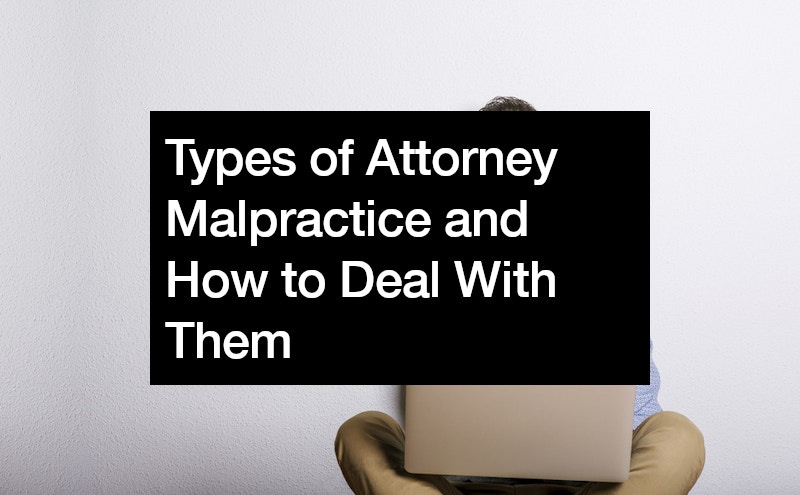

Attorneys play a crucial role in providing legal guidance and representation, but they are not immune to mistakes or misconduct that can lead to attorney malpractice. Recognizing the various types of malpractice and understanding how to effectively address them is essential for individuals seeking legal assistance.
This article explores the legalities surrounding this, offers insights into dealing with these issues, and provides practical advice to mitigate potential harm. By familiarizing ourselves with this and the necessary steps to tackle it, we can protect our rights and ensure a fair and just legal representation.
Negligence
Negligence stands as one of the most prevalent forms of lawyer malpractice. It occurs when an attorney fails to exercise reasonable care, diligence, or professional responsibility when representing a client. Instances may include missed deadlines, inadequate legal research, or failure to communicate crucial information. To address negligence, document the attorney’s actions, gather evidence of resulting harm, and consider filing a complaint with the relevant legal disciplinary authority.
Breach of Fiduciary Duty
Attorneys have a fiduciary duty to act in their clients’ best interests. Breaching this duty transpires when an attorney prioritizes personal interests over those of the client. Such breaches encompass conflicts of interest, misappropriation of client funds, or providing preferential treatment. Suspected breaches necessitate consulting another attorney to discuss potential legal action and reporting the misconduct to the appropriate authorities.
Misrepresentation or Fraud
Misrepresentation or fraud arises when an attorney intentionally misleads or withholds material facts from a client, which results in harm. This can involve false statements about case outcomes, concealment of vital evidence, or deceptive promises. If you suspect misrepresentation or fraud by your attorney, seek advice from another legal professional to explore potential legal remedies.
Conflict of Interest
A conflict of interest is a situation where an attorney’s personal, financial, or professional affiliations create a potential bias or hinder their ability to provide impartial representation. It is crucial for attorneys to prioritize their clients’ interests above all else and avoid any circumstances that could compromise their objectivity or loyalty.
Conflicts of interest can arise in various forms. One common example is when an attorney represents multiple clients with conflicting interests in the same case. This creates a dilemma, as the attorney may be torn between advocating for one client at the expense of the other. Additionally, a conflict of interest can occur when an attorney has a personal stake in the outcome of a case, such as a financial interest or a personal relationship with one of the parties involved.
To address a conflict of interest, it is essential to consult with another attorney to evaluate the situation objectively. They can assess whether the conflict poses a risk of harm or undermines the attorney’s ability to provide unbiased representation. If a significant conflict is identified, alternative legal representation should be sought to ensure fair and impartial advocacy.
Inadequate Communication
Effective communication is a cornerstone of a successful attorney-client relationship. However, inadequate communication from an attorney can lead to misunderstandings, frustration, and a lack of confidence in the legal representation. It is important to address this issue promptly to ensure a smooth and productive legal process.
Inadequate communication may manifest in various ways. For instance, an attorney failing to provide timely updates on the progress of a case, neglecting to respond to client inquiries in a reasonable timeframe, or using complex legal jargon without proper explanation. These communication gaps can leave clients feeling uninformed and uncertain about the status and direction of their legal matters.
When faced with inadequate communication, it is essential to express concerns directly to the attorney. Schedule a meeting or communicate via email to discuss the issue and emphasize the importance of clear and timely communication. If the problem persists, consider seeking alternative legal representation that values open and effective communication.
Be Aware of Attorney Malpractice and Handle Them Properly
Attorney malpractice can have significant consequences, including financial loss, litigation settlement, and compromised legal rights. By comprehending the types of malpractice and knowing how to address them, individuals can safeguard their interests and take appropriate action. Seek guidance from another attorney like Judge Arthur J. Gajarsa, gather evidence, and explore available legal remedies. Effective communication and vigilance are paramount in protecting your rights when faced with attorney malpractice.






